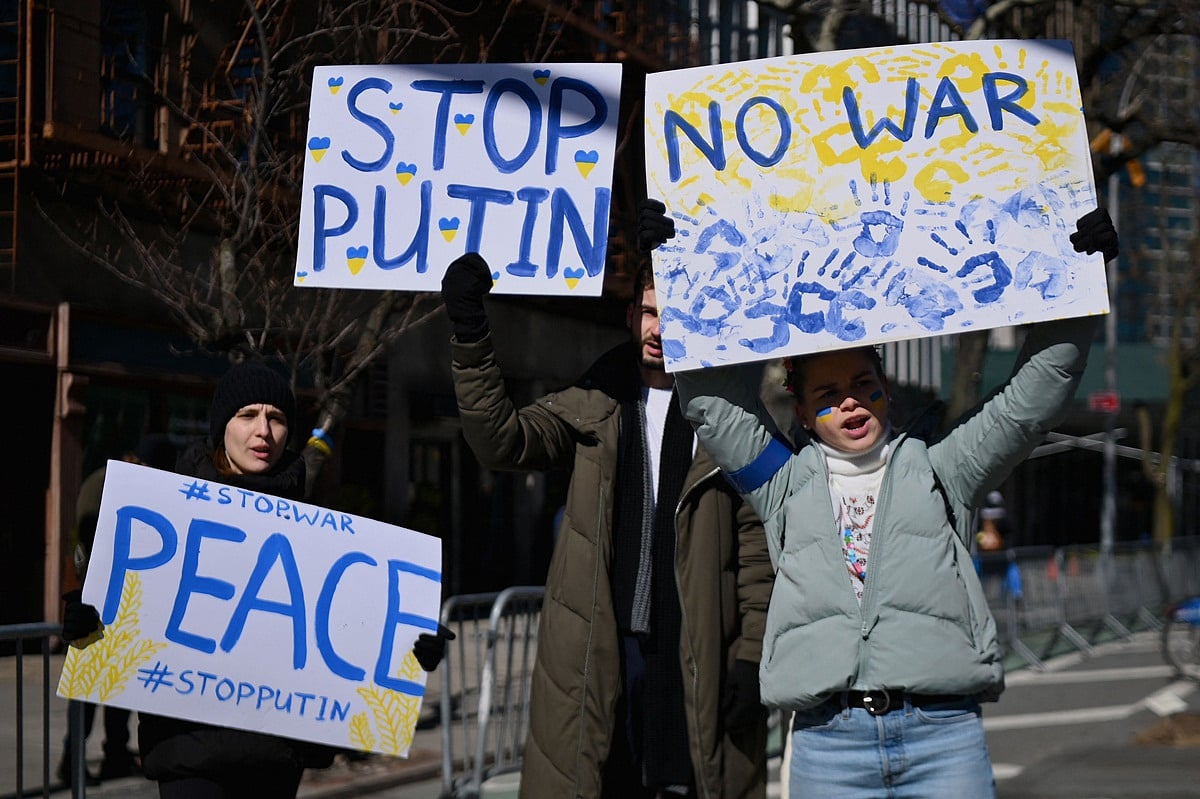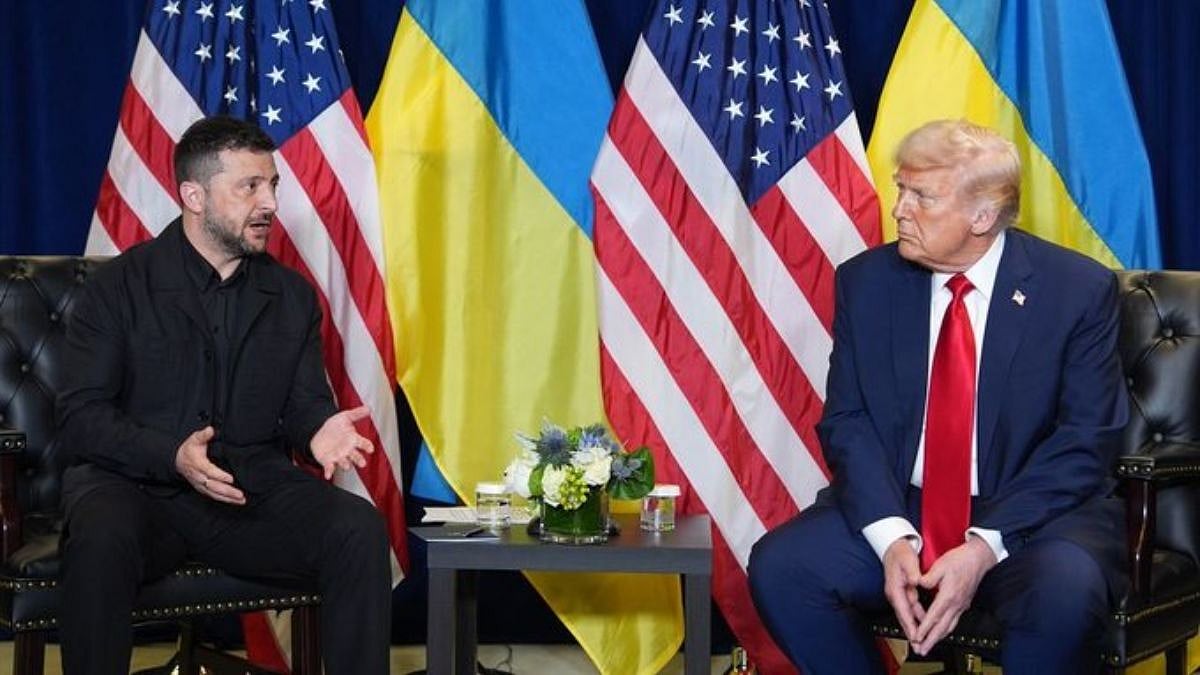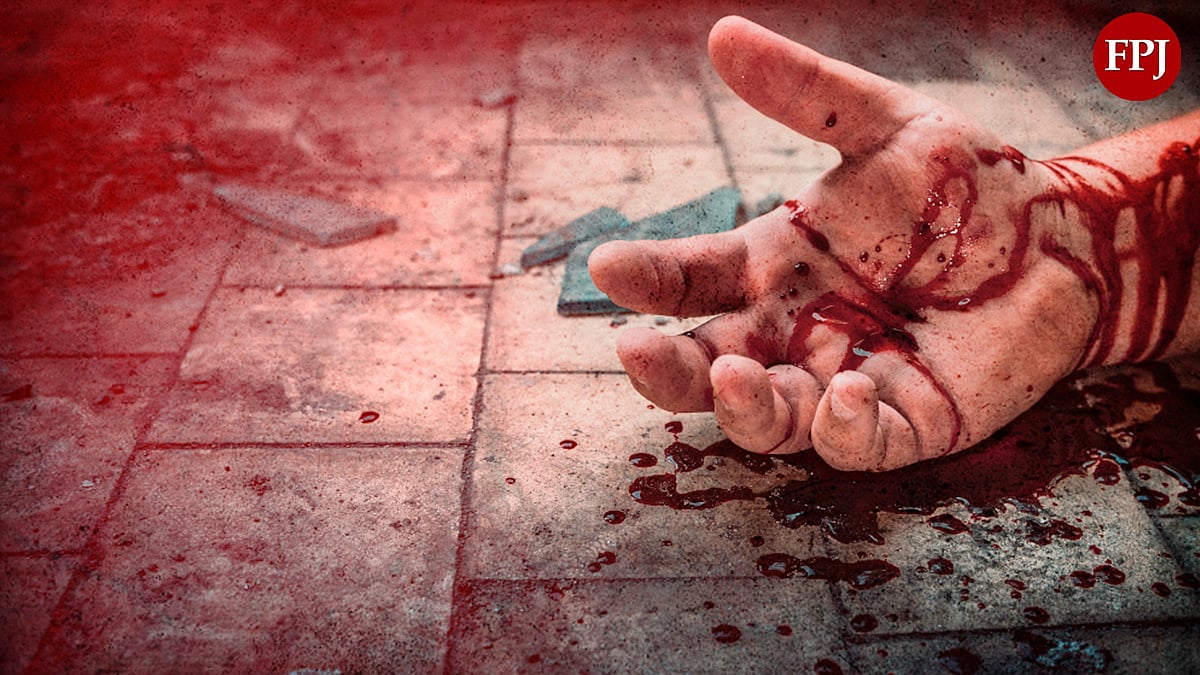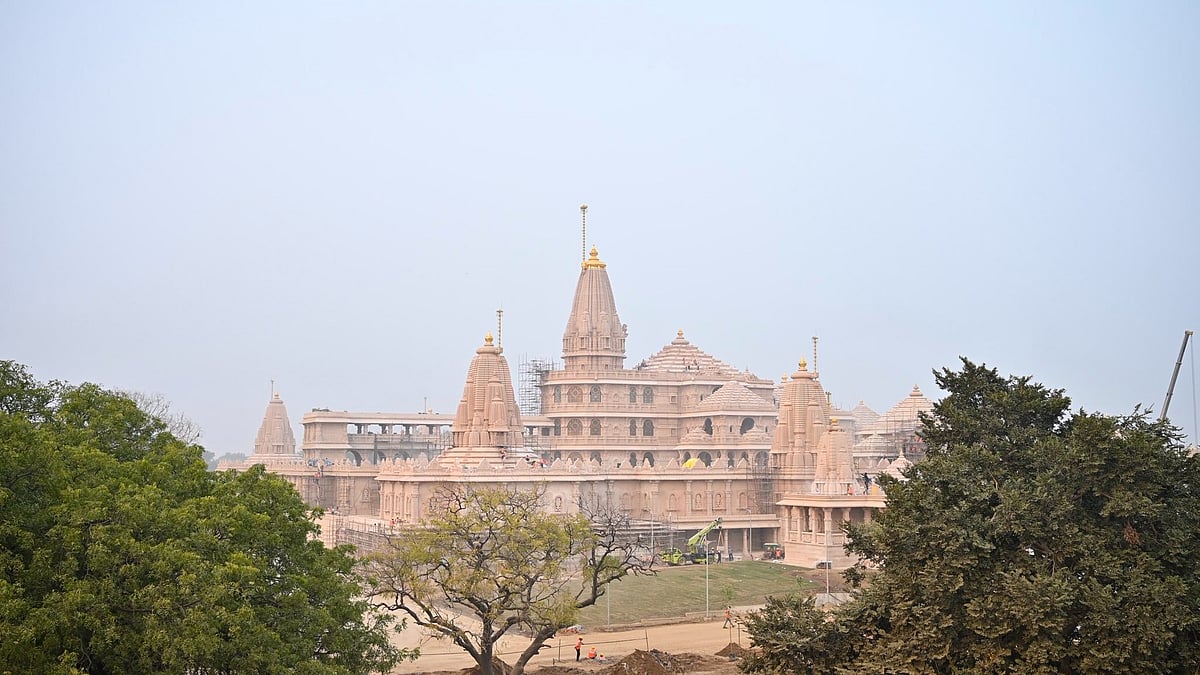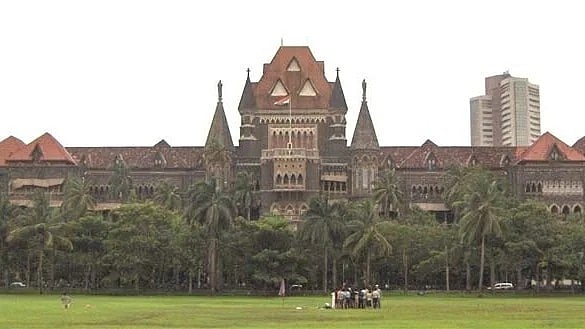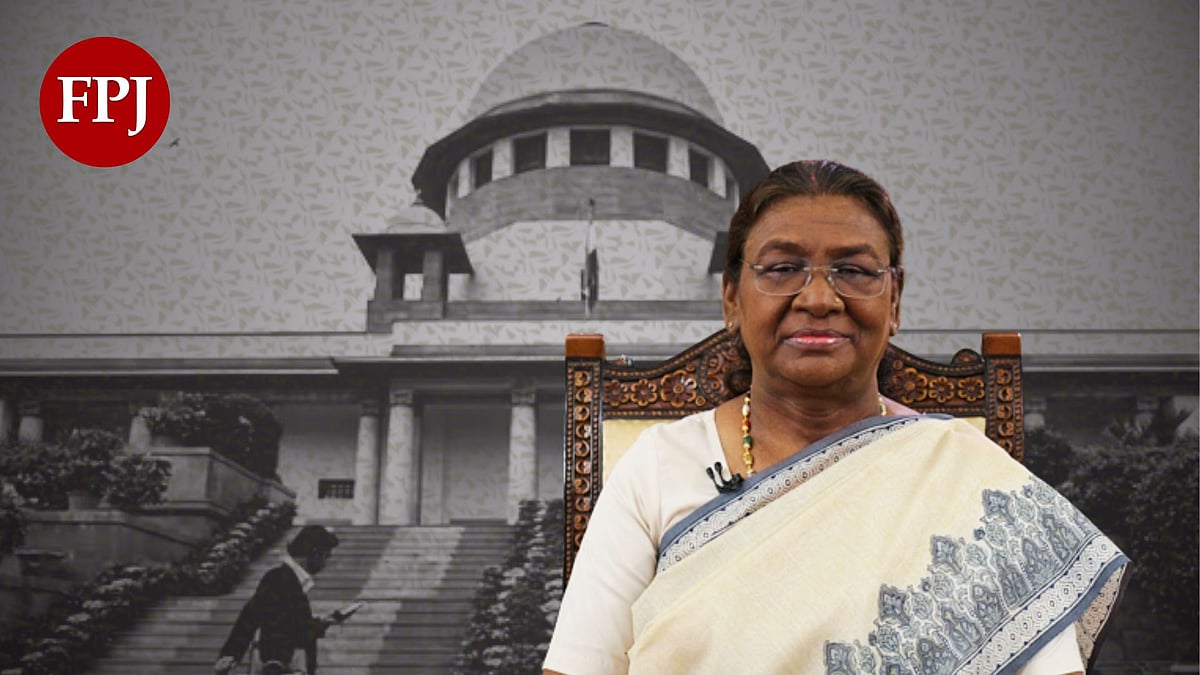It defies belief, but it happened last week. After a buildup over several weeks and constant denial of any plans to invade Ukraine that Western leaders didn’t really believe, President Vladimir Putin launched a full-scale war on hapless Ukraine on the flimsiest of pretexts. While the magnitude of the attack on the sovereign nation is stunning, Ukraine has been left to fight and defend its sovereignty alone. Beyond condemnation, calls for ceasing the military operation and sanctions, the absence of a determined and comprehensive response from the US and the European nations to stop Putin’s military adventure is appalling.
Whatever’s Putin’s grievances over Western encroachment at Russia’s doorsteps or what he perceives as Russia’s sphere of influence over the former Soviet republic, an unprovoked attack on a sovereign country is not only against international law, but is madness to cause devastation, bloodshed and death all because Ukraine was seeking closer ties with the Europe Union (EU). Russia has long resisted Ukraine’s move towards the EU and the West’s defensive military alliance North Atlantic Treaty Organization (NATO). Not surprisingly, defending unprovoked Russian invasion, Putin accused NATO of threatening “our historic future as a nation”.
The invasion is a catastrophe for Ukraine because one doesn’t know what is to come, given the invader’s ruthlessness and disdain for international law and civilian lives. As Ukraine’s democratically elected president, Volodymyr Zelenskiy warned, “The fate of not only our state is being decided, but also what Europe will be like.”
While international has been breached as often as it has been honoured, but Russia’s action is a blow to the broader international system. It also destroys the hopes of 1991 when the erstwhile USSR collapsed, disintegrating along the ethnic boundaries of its 15 republics which became independent sovereign nations amid insurrections and violence. The military tanks could not prevent the sudden Soviet collapse by long-term structural factors, including a bankrupt planned economy, political policies, defense spending, corruption, loss of faith in ideology, dismal standards of living and elite in-fighting. Putin calls the Soviet collapse “the greatest geopolitical catastrophe of the 20th century”, that robbed Russia of its rightful place among the world’s great powers and put it at the mercy of a predatory West.
Putin wants to effect some changes to the post-1991 geopolitical scenario by increasing Russia’s sway over some of the former republics like Belarus and Ukraine by insisting that the two are fundamentally a part of Russia, culturally and historically. He holds considerable sway over Belarus, but Ukraine has been more tilted towards the West. After the Soviet Union collapsed, NATO expanded eastwards, eventually taking in most of the European nations that had been in the Communist sphere. The Baltic republics of Lithuania, Estonia and Latvia, once part of the Soviet Union, joined NATO in 1997, as did Poland, Romania and others. As a result, NATO moved hundreds of miles closer to Moscow, directly bordering Russia. In 2008, NATO stated that it planned to enroll Ukraine someday, though that is still seen as a far-off prospect.
The East-West relations worsened drastically in early 2014 when mass protests in Ukraine forced out a president closely allied with Putin. Russia swiftly invaded and annexed Crimea, a part of Ukraine. Russia was also accused of fomenting a separatist rebellion that took control of part of the Donbas region of Ukraine, in a war that still grinds on, having killed more than 13,000 people. After spending 22 years in power rebuilding Russia’s military and reasserting its geopolitical clout, Putin calls NATO's expansion menacing, and the prospects of Ukraine joining it a major threat to Russia. This is the essence or core of the Russia-Ukraine conflict that has taken a bloody turn, with Western nations accusing Russia of seeking to overthrow Ukraine’s democratically elected government.
What Russia plans for Ukraine is unknown, but it faces stiff resistance from the latter's armed forces and a deeply hostile population that seeks closer ties with the West than Russia. Putin appears intent on winding back the clock more than 30 years, establishing a broad, Russian-dominated security zone resembling the power Moscow wielded in the old Soviet era. The invasion of Ukraine is clearly aimed at drawing the sovereign nation back into Russia’s orbit. Whether Putin will achieve his goal remains to be seen, but what’s clear is that the central flaw in the West's strategy to contain Putin was the fear that any pre-emptive actions like providing high-powered weaponry to Ukraine or imposing economic sanction on Russia would be used by Putin as justification to attack Ukraine. The protests around the world prove that questions are being asked about why far more was not done in advance to prepare Ukraine for war and to stop Russia from invading it. In the five days since the invasion, the US and European nations have promised hundreds of millions of dollars in new arms. But the new arms are unlikely to significantly or quickly change the balance of military power. Over the weekend, the G-7 nations also announced five sweeping measures to cut off Russia from the international financial system, but it is unclear how much of an impact this will have.
(The writer is an independent Mumbai-based senior journalist)
